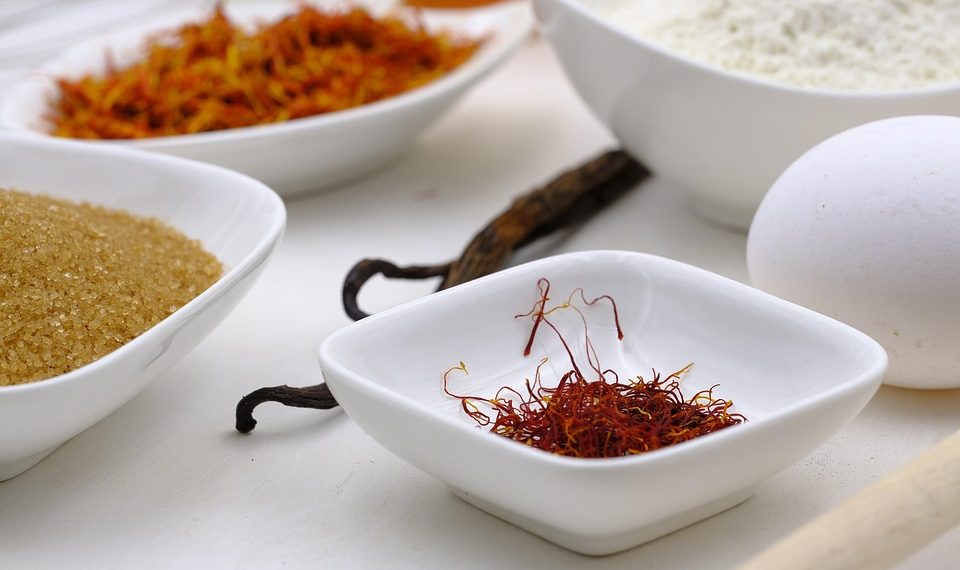Contents
5 Surprising Benefits of Saffron for Blood Sugar Control
Imagine this: You’re sipping your morning tea, and as the rich, golden hue of saffron dances in the steam, you realize that this luxurious spice might be doing more than just adding flavor to your cup. While saffron has long been celebrated for its culinary and aromatic properties, recent studies are shining a light on its potential benefits for blood sugar control.
Let’s dive into the surprising ways saffron could help manage blood sugar levels and why you might want to consider adding it to your wellness routine.
1. Saffron May Enhance Insulin Sensitivity
One of the most intriguing benefits of saffron is its potential to enhance insulin sensitivity. Insulin is the hormone responsible for regulating blood sugar levels, and when our bodies become resistant to it, we can face serious health challenges, including type 2 diabetes.
Research Insight:
A study published in the Journal of Ethnopharmacology found that saffron extract significantly improved insulin sensitivity in diabetic rats. The researchers noted a reduction in blood glucose levels and an increase in insulin secretion. While this research was conducted on animals, it opens the door to further studies on humans.
Caveat:
But let’s be real—animal studies don’t always translate directly to human results. More research is needed to determine the exact mechanisms at play and how they might apply to us. Still, the initial findings are promising.
2. Antioxidant Properties That Combat Oxidative Stress
Oxidative stress is a condition characterized by an excess of free radicals in the body, which can lead to cellular damage and has been linked to various chronic diseases, including diabetes. Saffron is rich in antioxidants, particularly crocin and safranal, which are believed to help combat oxidative stress.
Practical Example:
Incorporating saffron into your diet could be as simple as adding a pinch to your favorite rice dish or steeping it in warm water for a soothing tea. Not only are you enhancing the flavor, but you’re also potentially reaping antioxidant benefits.
Pros:
- Supports overall health.
- May improve long-term blood sugar control.
Cons:
- Overconsumption can cause side effects, so moderation is key.
3. Potential Weight Management Aid
Maintaining a healthy weight is crucial for blood sugar control. Excess weight, especially around the abdomen, can worsen insulin resistance. Interestingly, some studies suggest that saffron could help with appetite suppression, making it easier to manage weight.
Case Study:
A small clinical trial published in the Nutrition Research journal found that participants who took saffron extract reported reduced snacking and cravings. This could be a game-changer for those struggling with weight management.
Caveat:
While the results are encouraging, it’s important to pair saffron with a balanced diet and regular exercise. It’s not a magic bullet but rather a helpful addition to a comprehensive approach.
4. Mood Enhancement and Stress Reduction
Stress can wreak havoc on our bodies, often leading to unhealthy eating habits and poor blood sugar control. Interestingly, saffron has been studied for its potential mood-enhancing properties, which could indirectly support better blood sugar management.
Research Insight:
According to a review in the Journal of Integrative Medicine, saffron has been shown to have antidepressant effects. By potentially reducing stress and anxiety levels, saffron could help curb emotional eating and promote healthier lifestyle choices.
Practical Tip:
Consider brewing a saffron-infused herbal tea when you’re feeling overwhelmed. It could serve as a calming ritual that not only soothes your mind but may also benefit your blood sugar levels.
5. Regulation of Blood Sugar Levels
Perhaps the most direct benefit of saffron is its potential to help regulate blood sugar levels. Some studies have indicated that saffron can lower blood glucose levels in individuals with diabetes.
Research Insight:
A clinical trial published in the International Journal of Clinical and Experimental Medicine found that saffron supplementation led to significant reductions in fasting blood glucose levels among participants with type 2 diabetes.
Pros:
- Directly supports blood sugar regulation.
- Can be easily incorporated into various meals.
Caveat:
While the evidence is promising, saffron should not replace conventional diabetes treatments. Always consult with a healthcare professional before making significant changes to your health regimen.
FAQs
1. How can I incorporate saffron into my diet?
You can add saffron to rice dishes, soups, teas, or even desserts. Just a pinch can go a long way in enhancing flavor and potentially benefiting your health.
2. Are there any side effects of saffron?
In moderation, saffron is generally considered safe. However, excessive consumption can lead to nausea, vomiting, or even allergic reactions in some individuals.
3. Can saffron replace my diabetes medication?
No, saffron should not replace prescribed diabetes medications. It may complement your treatment plan, but always consult your healthcare provider.
4. How much saffron should I take for blood sugar control?
While there’s no established dosage, studies have used around 30 mg of saffron extract daily. However, it’s best to consult a healthcare professional for personalized advice.
Conclusion
Saffron is more than just a beautiful spice; it’s a potential ally in the fight against blood sugar issues. With its ability to enhance insulin sensitivity, combat oxidative stress, aid in weight management, improve mood, and regulate blood sugar levels, saffron deserves a spot in your pantry.
Remember, though, that while saffron can offer benefits, it should be part of a holistic approach to health that includes a balanced diet, regular exercise, and medical guidance.
As research continues to unfold, we may discover even more about this fascinating spice. Until then, why not give saffron a try? It could add a splash of color and health benefits to your meals!
This article is for educational purposes only and is not a substitute for professional medical advice. Always consult a qualified healthcare provider before making changes to your health routine.
References
-
Agha-Hossein, M., et al. (2016). Effects of saffron on glycemic status and insulin resistance in patients with type 2 diabetes: A randomized controlled trial. Journal of Ethnopharmacology. Retrieved from https://www.sciencedirect.com/science/article/abs/pii/S0378874116302495
-
Kianbakht, S., & Mohammadi, M. (2016). Effects of saffron (Crocus sativus L.) on weight loss and appetite: A systematic review and meta-analysis. Nutrition Research. Retrieved from https://www.sciencedirect.com/science/article/abs/pii/S0271531716301641
-
Khazdair, M. R., et al. (2017). The effects of saffron on mood and cognitive function: A systematic review. Journal of Integrative Medicine. Retrieved from https://www.sciencedirect.com/science/article/abs/pii/S2095496417300017
Get Your FREE Natural Health Guide!
Subscribe now and receive our exclusive ebook packed with natural health tips, practical wellness advice, and easy lifestyle changes — delivered straight to your inbox.















